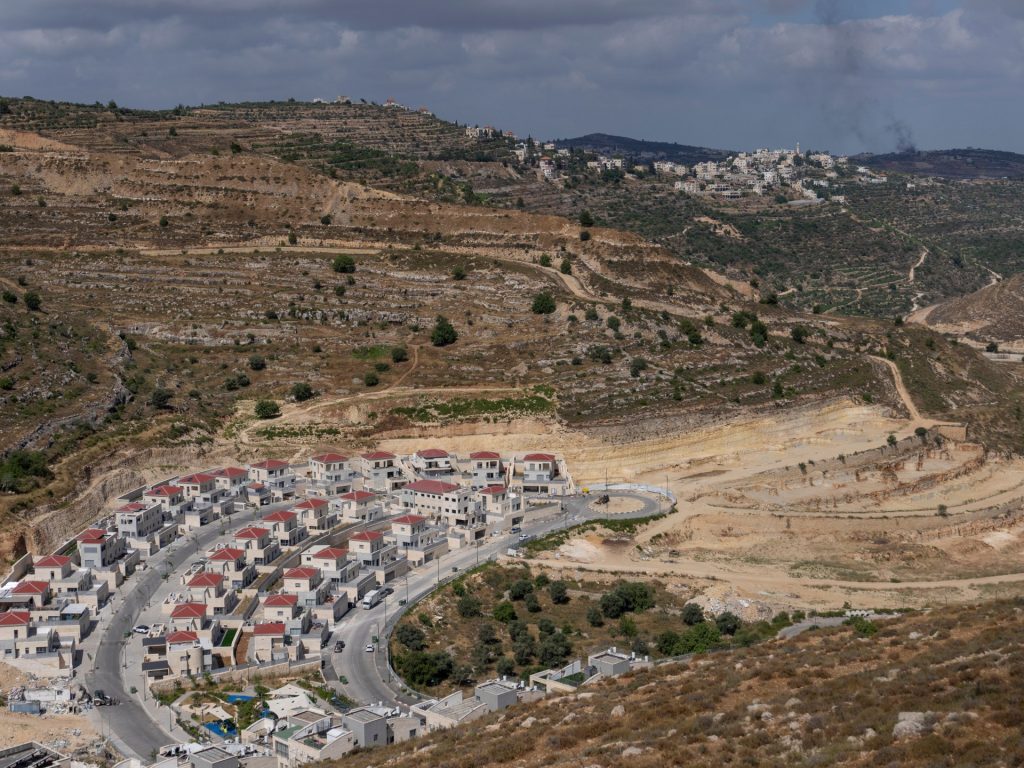The International Court of Justice (ICJ) has ruled that Israel’s continued military presence in the Occupied Palestinian Territories is illegal and must end “as soon as possible.”
Nawaf Salam, president of the International Court of Justice in The Hague, on Friday read out a non-binding advisory opinion issued by the 15-judge panel on Israel’s occupation of Palestinian territory.
The judges pointed to a wide range of policies, including the construction and expansion of Israeli settlements in the West Bank and East Jerusalem, the exploitation of the areas’ natural resources, the annexation and imposition of permanent control over land, and discriminatory policies against Palestinians, all of which they said violate international law.
The court said Israel has no sovereignty over the territory, violates international law prohibiting the acquisition of territory by force, and interferes with the Palestinian people’s right to self-determination.
The opinion said other countries are obliged “not to give aid or support to the maintenance” of Israel’s presence in the region. Israel must immediately stop building settlements and demolish existing ones, according to a summary of the more than 80-page opinion read by Salam.
The court said Israel had “abuse[ed]its status as an occupying Power” and that its “presence in the Occupied Palestinian Territory is illegal.”
“Israeli settlements in the West Bank and East Jerusalem and their associated administration have been established and are maintained in violation of international law,” the court said.
The Court’s opinion was sought at the request of the 2022 UN General Assembly.
The ICJ, also known as the World Court, is the United Nations’ highest body that hears disputes between nations.
Israel occupied the historic Palestinian territories of the West Bank, Gaza Strip and East Jerusalem in the 1967 war, where Palestinians want a state. Israel has steadily expanded since then, building settlements in the West Bank and East Jerusalem, as well as in Gaza before its withdrawal in 2005.
The United Nations and the majority of the international community consider the Palestinian territories to be under Israeli occupation.
“Tipping point”
Palestinian Foreign Minister Riyad al-Maliki told reporters in The Hague that the ruling marked “a turning point for Palestine, justice and international law.”
“The International Court of Justice has fulfilled its legal and moral obligations with this historic ruling. All states must now abide by a clear obligation: no aid, no support, no collusion, no money, no arms, no trade and no action whatsoever in support of Israel’s illegal occupation,” he said.
Palestinian UN Ambassador Riyad Mansour said the ruling was an “important step” towards ending the occupation and achieving the inalienable rights of Palestinians, including the right to self-determination, statehood and the right of return.
The right of return refers to the right of Palestinians who were forced to leave their homes during the 1948 Nakba and the 1967 Arab-Israeli war to be allowed to return to their homes.
Mansour said his team will study the entire judgment and “analyze every sentence.”
“We will consult with the United Nations and our friends around the world,” he said, adding that “we will produce a masterpiece resolution in the General Assembly.”
The Israeli Foreign Ministry rejected the opinion as “fundamentally wrong” and one-sided.
Israeli Prime Minister Benjamin Netanyahu’s office issued a statement calling the verdict a “false verdict” that distorted the truth and said “Jews are not occupiers of their own land.”
Human rights lawyer Geoffrey Nice told Al Jazeera that although the ICJ ruling is not binding, it would be difficult for world leaders to completely “ignore” it.
“This is a part of the legal system that’s saying enough is enough,” he said.
“For any interested, informed and concerned public, it is hard not to say, ‘It’s time for Israel to get its act together’,” he said.
“There is a lot of hope that this verdict will bolster an international movement in the West and around the world calling for further sanctions and for Western governments to increase pressure on Israel,” said Marwan Bishara, a senior political analyst at Al Jazeera.
In another case brought by South Africa, ICJ is considering The claim that Israel is committing genocide Gaza War.
A preliminary ruling has already been issued in the case, with the court ordering Israel to prevent and punish incitement to genocide and to increase the provision of humanitarian aid.
In May, International Court of Justice The court also ordered Israel to stop attacks on the southern Gaza city of Rafah, citing “immeasurable danger” to which hundreds of thousands of Palestinians have fled. However, Israel continues to attack Gaza, including Rafah, in defiance of the UN Court’s ruling.


